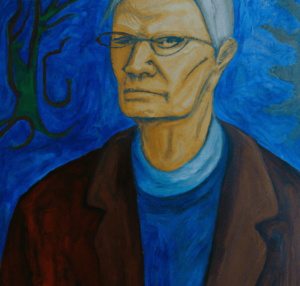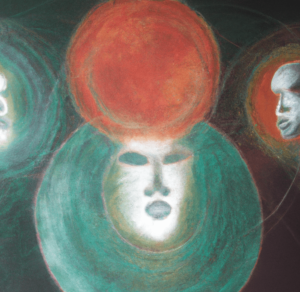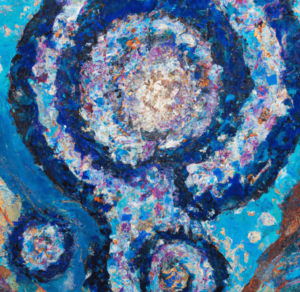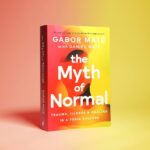Carl Gustav Jung, a Swiss psychiatrist and psychoanalyst, has forever left his indelible mark on the field of psychology. His concepts of the collective unconscious, archetypes, synchronicity, and analytical psychology continue to permeate psychology, philosophy, literature, and, more recently, personal development and education.
Let’s start with a brief sketch of Jung’s life before we dive into his compelling ideas and their impact on personal development and education, particularly through the lens of his influential work, Modern Man in Search of a Soul.
The Life of Carl Jung
Born on July 26, 1875, in Kesswil, Switzerland, Carl Jung was the son of a poor rural pastor. His formative years were marked by his keen interest in spirituality, which would eventually shape his groundbreaking theories. His unique perspective developed from an early age, with a fascination for dreams and symbolism.
Jung attended the University of Basel and later the University of Zurich, where he completed his medical degree in 1902. He worked under Eugen Bleuler at the Burghölzli hospital, a hotspot of clinical research, where he delved into his study of schizophrenia. His work in psychoanalysis led to a deep friendship with Sigmund Freud, though this relationship ended due to differences in their theoretical perspectives. After this split, Jung embarked on a period of self-analysis and exploration that would ultimately form the foundation of his own school of analytical psychology.
‘Modern Man in Search of a Soul’
Modern Man in Search of a Soul, one of Jung’s most influential works and my personal favourite, is a fantastic exposition of his most compelling ideas. Published in 1933, it is a collection of essays where Jung eloquently combines his profound knowledge of ancient and modern cultures, science, philosophy, and art, offering profound insights into human nature and society.
Jung begins the book by addressing the conflict between psychotherapy and traditional Western thought. He emphasises the need for a radical shift in our understanding of the human mind and soul, suggesting a holistic approach that takes into account the spiritual, intellectual, emotional, and physical dimensions of human existence.
This book was one of the first that asserted the importance of an individual’s internal world – their thoughts, emotions, and perceptions – in understanding their behaviour and personal development. He argued that our unconscious mind, rich with symbolic imagery and often expressed through dreams, can provide critical insights into our inner workings.
The Unconscious and the Archetypes
Jung’s concept of the collective unconscious is one of his most enduring contributions. He proposed that alongside our personal unconscious, which is unique to each of us and filled with our personal experiences, we also have a collective unconscious, a sort of universal memory that holds archetypal images shared by all humans. These archetypes are a shared heritage, symbols, and motifs that appear in cultures across time and space.
Relating this concept to personal development and education, the awareness and understanding of these archetypes can assist individuals in their journey of self-discovery and self-improvement. By understanding the universal symbols and themes that play out in our lives, we gain insights into our patterns, motivations, and personal narratives.
Individuation and the Self
One of the most influential ideas in Modern Man in Search of a Soul is the concept of individuation, the lifelong journey towards self-realisation and wholeness. This concept has had a significant influence on theories of personal development.
Individuation involves the integration of unconscious aspects of ourselves into consciousness, leading to self-awareness and personal growth. In the educational context, this concept emphasises the importance of self-discovery and understanding in fostering a deep, meaningful learning experience. Education, therefore, should not only focus on imparting knowledge, but also nurturing the individual’s holistic development, including their emotional, social, and psychological growth.
Jung’s idea of the Self is pivotal in this process. He conceptualised the Self as the unification of the conscious and unconscious parts of our mind, representing the fulfilled potential of a person. The journey toward this integrated Self is at the heart of personal development, as it entails recognising and reconciling our various internal aspects, including our shadows – the elements of our personality we’d rather not acknowledge.
Dreams and their Interpretation
In Modern Man in Search of a Soul, Jung offers a revolutionary perspective on dreams. Unlike Freud, who viewed dreams as wish fulfilment, Jung proposed that dreams provide a means to communicate with our unconscious and to balance our conscious attitudes. This idea underscores the importance of self-reflection and introspection in personal growth.
In an educational context, it invites learners to be more reflective, urging them to look inward, interpret, and understand their experiences, just as one would a dream. This approach enriches the learning process, making it a journey of personal exploration and meaning-making, beyond rote memorisation or fact acquisition.
The Importance of Symbolism
Jung had a profound appreciation for the symbolic life, and he emphasised the importance of myths, legends, and art as expressions of the human psyche. These symbolic representations are vital in personal development, providing a rich resource for individuals to understand their psychological landscapes and life experiences.
Moreover, in education, this idea has given rise to the utilisation of narrative and story-telling techniques, encouraging learners to construct and understand knowledge in a manner that is personally meaningful and symbolically rich.
Concluding thoughts…
Carl Jung’s visionary ideas in Modern Man in Search of a Soul continue to offer profound insights into personal development and education. His understanding of the human psyche provides a blueprint for a holistic approach to learning and development, one that transcends traditional paradigms and invites us to embark on a journey of self-discovery and self-realisation.
In our fast-paced, efficiency-driven world, Jung’s work serves as a reminder that the journey towards wholeness is not linear or straightforward, and that education and personal development are lifelong processes, enriched by introspection, dream interpretation, symbolic understanding, and self-integration. Reading and reflecting upon “Modern Man in Search of a Soul” might just offer the soulful nourishment we need in our modern-day quest for meaning and self-actualisation.









